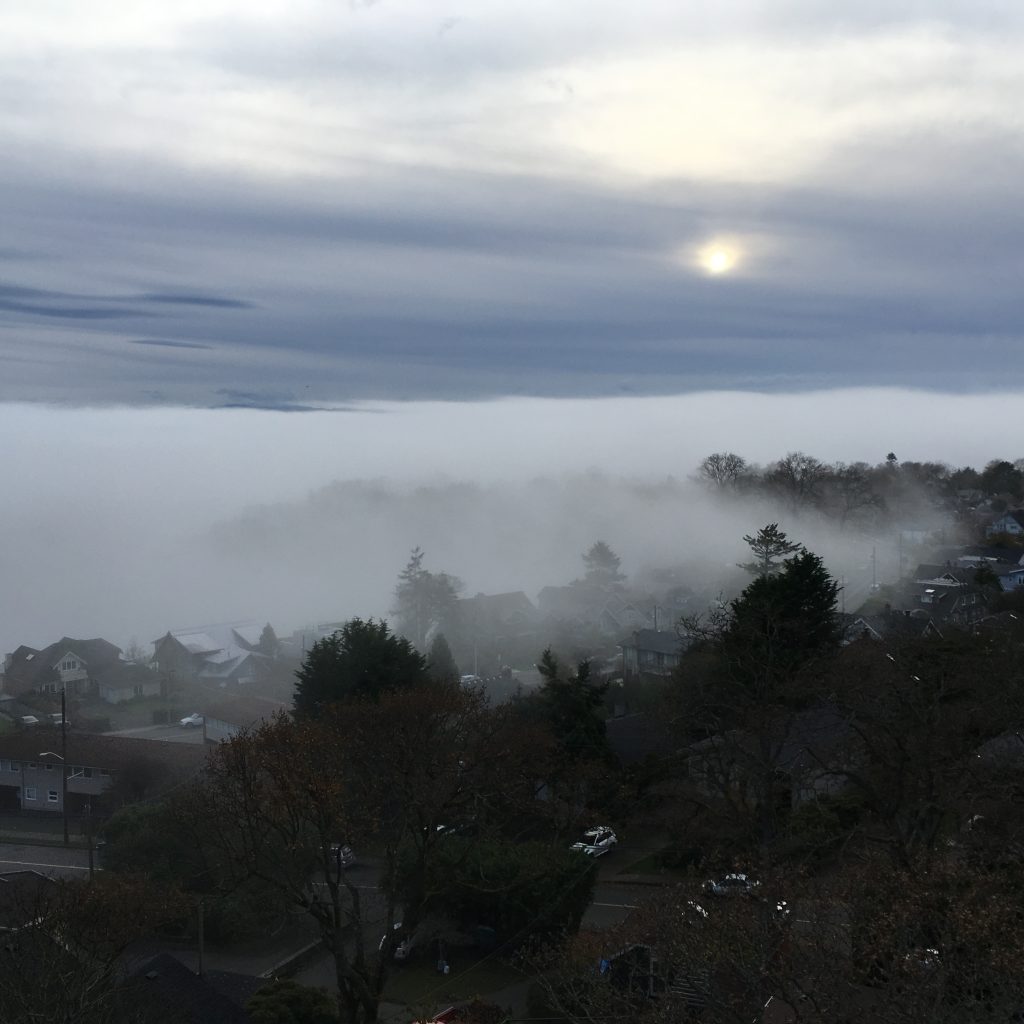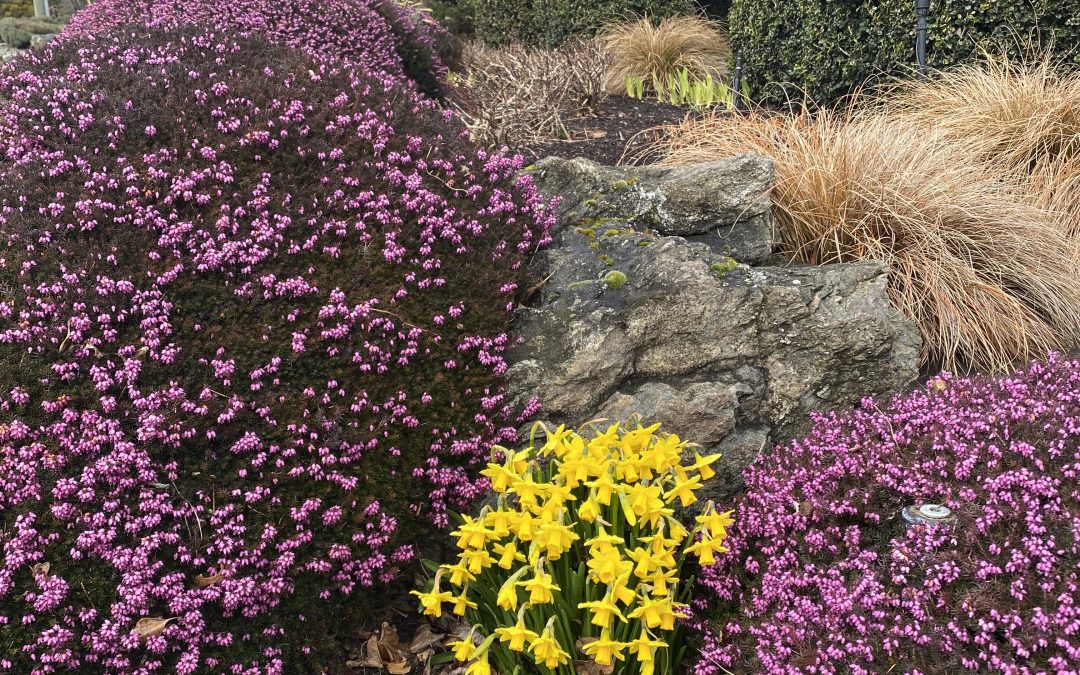As we begin this fourth week in Lent, I decide, as I have decided before, that I like the life of a pilgrim. I like to begin every week with preparations that will help me keep focused on one goal that is beyond my grasp. My goal is to allow myself to be transformed into my true self.
I like mystery because I am a mystery to myself and everyone I meet is a mystery to me. Karl Rahner, who was the Roman Catholic of the twentieth century, famously said that Christians of the twenty–first century would be mystics or they would not be at all. Rahner thought and spoke of God as ‘Holy Mystery.’
An adventure like a pilgrimage calls for some taking stock. This is my list of preparations for pilgrimage.
- Take note of what your situation and surroundings are and of what you have at your disposal.
- Be prepared to use what you have on hand. (You don’t need to go to a store.)
- Do what you can.
Last weekend our clocks sprang ahead marking the end of a season of darkness here in Canada. I am glad to see more blue sky today. There is now more light and length in our days. I am glad of this, and yet, I am going to miss the winter long nights darkness with the nuanced sunlight and moonlight that sift through the clouds.

Darkness is part of what many of us have gone to for solitude and reflection on the terrors and disappointments of this time. Famine, war, lies and other breakdowns challenge our minds and hearts.
Meister Eckhart said in the fourteenth century that the ground of our souls is dark in a darkness that invites us to enter into depth. We hope that darkness is part of the transformation of our small egos into a closer resemblance to what is good. We remember that sometimes darkness is the mystery that allows us to see the light in the darkness.
This is darkness which we do not want to be lost to us. One of my friends, who is a Psychologist for children and adults, says that at this time, perhaps because it is springtime, also perhaps because we know the tradition of Lent, we are wrestling more than usual with our personal and also our collective shadow selves. The shadow which we all have is what makes us turn away from or hide from what we cannot look at because it makes us feel ashamed of ourselves and at times ashamed of our entire human race. We seem to have shadow in endless supply.
One variety of shadow that many of us wrestle with at this time is our personal and communal obsession with our phones and devices. This obsessive shadow habit of paying too much attention to our electronic devices keeps us from being in loving community with what Thomas Berry calls,’ our made of earth community.’
For me, the image of us as ‘hubs,’ perhaps like phone booths, is a dark image which stands against our hope to be full of transcendent light and moving towards our hoped for transformation. The ‘hub’ is truly shadow for me. I am aware of it and trying to remember that it is not a good thing.
In contrast to the image of our being ‘hubs,’ I like the image of our being like golden daffodils reaching towards sunlight that is beyond their reach, but is nonetheless life giving. This transcendent hope, for us and for our larger communities, is large and mysterious. It is transcendent hope because It takes us beyond our small egoic selves into a realm which is mystery beyond what we can imagine, the image of our‘ golden shadow.’
Every year I need time during Lent to learn how to carry the list of things which I try to hide from my mind and heart. I need help learning how to not turn away from what is surely part of my responsibility to hold up to the light . I need the strength of character to respond when there is opportunity to say or do something that will help another person or other persons to live their lives. The injustice and violence which keep people from life is both close to us in our communities and cities and also far from us – even across the world. Part of what makes this difficult for us is that we humans are mammals and, like all mammals, we are local-minded. It is a stretch of our hearts and minds to love our neighbours as we love ourselves. We need help with this.
One thing that helps me pay attention to shadow is what Rabbi Abraham Joshua Heschel says we should do. He says we should try to act on behalf of goodness as stand ins for God’s own goodness. . Isn’t that mystery!! It is too wonderful for me to understand but I see the golden hope in what he is saying.
Rabbi Heschel lived during the holocaust and was an active presence during the Civil rights movement, and beyond, until 1972. He was friends with Martin Luther King Jr. and with Vietnamese Buddhist monk, Thich Nhat Hanh. Heschel spoke up and spoke out but he also listened carefully and thoughtfully to other voices who said that God has abandoned us. In response to this, Heschel reminded us that God loves us and made a covenant with us that gives us freedom to choose, a covenant in which God promised to give us freedom, even the freedom to destroy ourselves and each other.
He lived his life in the belief that the creator and all loving God will not interfere with our freedom. His stance and perhaps what Rabbi Heschel is most loved and honored for is this recommendation: ‘Praise before Prayer.’
He recommends that we respond to what we praise with awe and wonder.
This is solid ‘pure gold advice’ for us as we try to help God drag our shadow attitudes and behaviors into the golden light of transcendent transformation. May we help each other with this good work!

Recent Comments